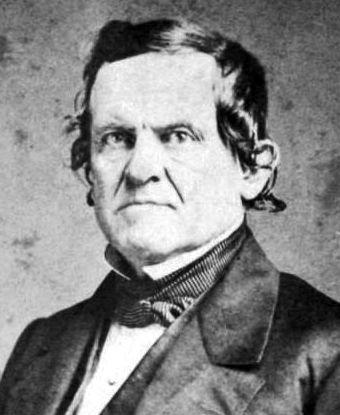Last updated: November 10, 2018
Person
Francis Wilkinson Pickens

Francis Wilkinson Pickens, grandson of Revolutionary War general Andrew Pickens, was a lawyer, state and federal legislator, US ambassador to Russia, and governor of South Carolina. During his term as governor, he witnessed and supported the secession of South Carolina from the Union and the opening shots of the Civil War from Confederate batteries at Union-held Fort Sumter.
A political ally of Senator John C. Calhoun, Pickens ardently supported nullification in the 1830s, questioning the legality of a protective tariff. At the 1850 Southern Rights Convention in Nashville, Pickens emerged as a strong advocate for secession. The failure of southern cooperation pushed him briefly toward the radical position of separate state action, but he returned to the fold of the national Democratic party and actively campaigned for the 1856 candidacy of President James Buchanan. In return for his support, Buchanan offered Pickens the position of minister to Russia, which he eventually accepted. He served there from 1858 to 1860, befriending Czar Alexander II.
In 1860, Pickens was elected governor of South Carolina and was installed just days before the state voted to secede from the Union. Under intense pressure to remove the Federal presence from Charleston Harbor, Pickens protested the move of Major Anderson's Union garrison from Fort Moultrie to Fort Sumter. Apart from the shots fired at the Star of the West in January 1861, a vessel sent to reinforce and reprovision Fort Sumter, Pickens avoided hostilities. The eventual bombardment and capture of Fort Sumter, which opened the Civil War, came after the Confederate government took control of events in the harbor.
Pickens' administration was beset was war-related problems, including raising troops and supplies to defend the coastline and assist the army in Virginia. Confidence in Pickens' leadership eroded over the course of his term, and his power diminished with the creation of a five-member executive council.
He retired from politics in 1862, retiring to his plantation in Edgefield, but returned at war's end to represent his district in the state's constitutional convention. Pickens, as a convention delegate, recommended South Carolina adopt a policy of cooperation with the Johnson administration and personally introduced the bill to repeal South Carolina's Ordinance of Secession. It passed by a margin of 105 to 3. He died at his home on January 25, 1869, and was buried at Willowbrook Cemetery in Edgefield County.
